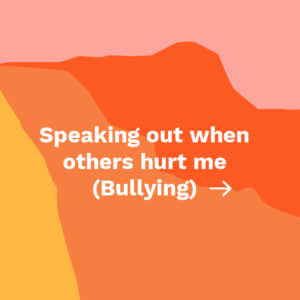
Speaking out is about voicing your discomfort when someone makes you feel uncomfortable. It could involve confronting a romantic partner, classmate, or friend about things they say or do that make you uncomfortable. It’s not easy, but the most important thing you can do in building healthy relationships is to set clear boundaries with people and recognise when they are crossed.
Speaking out and standing up for yourself can be pretty scary. It’s normal to feel uneasy about standing up for yourself. Speaking out is a skill, and just like other skills it needs to be practiced. Being able to speak out is super important for improving the quality of your relationships. To make those around us aware of their actions, we have to communicate in a healthy and effective manner – and this is something that must go both ways in a relationship.
Everyone should feel comfortable expressing their feelings or discomfort.
If we don’t make others aware of their bad behaviours, we’re doing them damage; tiptoeing around the problem only allows it to worsen, and potentially affect more people.
It can be difficult to start the conversation, so here are our top tips to speaking out. Hopefully these will make the process a whole lot easier.
It can be difficult to start that initial conversation; here are some steps you can take before speaking out. Hopefully these will make the process a whole lot easier.
Recognise and identify the behaviour that makes you feel uncomfortable, and then tell the person how it affects you. As humans we generally don’t like being told what we’re doing wrong, so placing the emphasis on how you feel in response to their actions is key. If this is a relationship you want to keep, try not to come across as attacking the other person; talk about the problem in a calm and mature manner. Focus on the issue or behaviour at hand, and don’t get personal.
After speaking out, if their response makes your emotions seem invalid, or they ignore the situation, it might be time to think about whether you still want the relationship in your life. At the same time, if someone points out things you have done in an effort to communicate their own boundaries, it’s important to remain mature and open to change. Be considerate and try see their side of the story, as you hope they would for you.
Be patient but be firm. You deserve the best.
Change your perspective and uncover a way forward for you!
Here are some things that can help you with that.
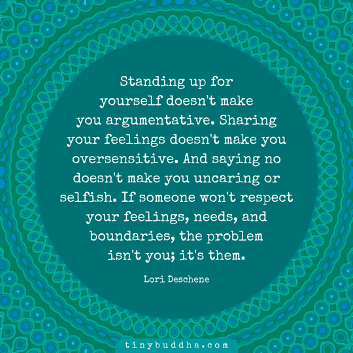
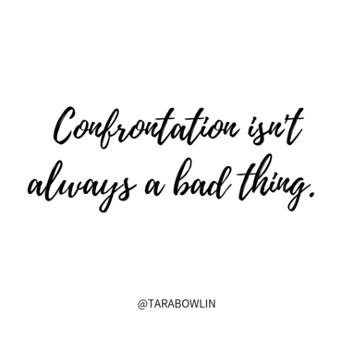
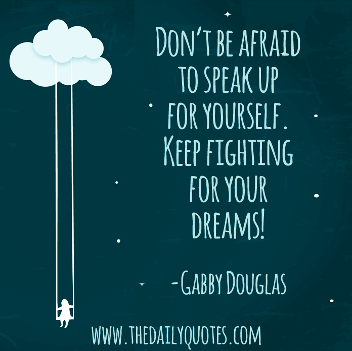
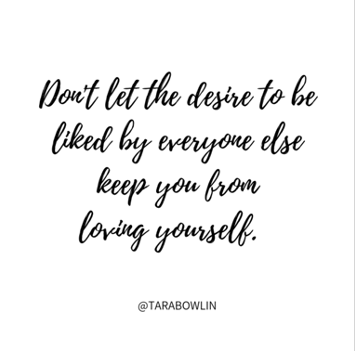
YouTube
Great
reads

Ginger Kid by Steve Hofstetter
Comedian Steve Hofstetter explores with life after seventh grade -when his world fell apart. Steve shares stores of awkward early dating, family turbulence, and the revenge of the bullied nerds. This book is for any one who's ever felt like a misfit, and for those who dream big.
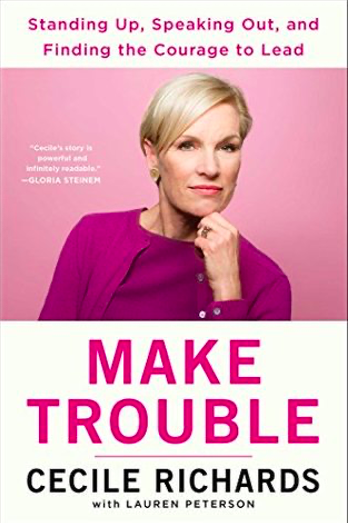
Make Trouble by Cecile Richards
Cecile Richards has been a women rights and labour activists for decades. Her life story explores exactly what it means to standup for yourself.
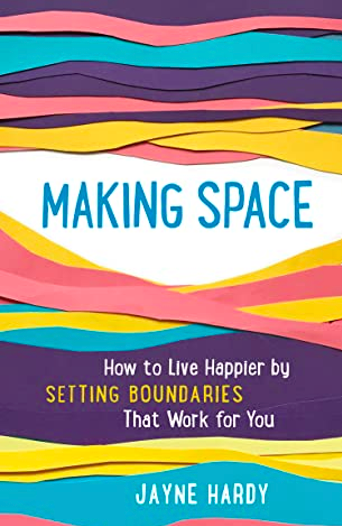
Making Space by jayne Hardy
With this relatable, compassionate guide, you’ll create strong boundaries around work, home, relationships, and more:
Face the fear of rejection and let go of stress.
Great
Films

The Secret Life of Walter Mitty
Walter Mitty works a dead-end office job, and dreams up romantic and action-filled scenarios to escape from his monotonous life. When his job is threatened, he sets out on a real journey.

On the Basis of Sex
This biographical legal drama film is based on the life of US Supreme Court Justice Ruth Bader Ginsburg, and her struggle for equal rights

Hidden Figures
Hidden Figures explores the story of a team of African-American mathematicians, working at NASA during the U.S space program and experiencing the sexism and racism of a male-dominated field.
What science says
Research shows we often misjudge how assertive we are being. We over-estimate how assertive and dominating our behaviour comes across. Research finds that 57% of people, judged by others as being under-assertive, thought they themselves were either appropriately assertive or overly assertive. Plus, those who were judged to be appropriately assertive by others, though
Places to find more resources
Would you like to get inspired about your life?
Join a Highway session today.
If you would like to explore what’s going on for you today, then just jump on! You will be welcomed to a safe, warm, non-judgemental space where you can be yourself and uncover what is important to you. You have all the answers. Let us help you find your way.

Donate and inspire young people to a positive pathway in life.
Giving all young people the gift of being heard, connected and feeling empowered to follow their path to becoming the best versions of themselves.








